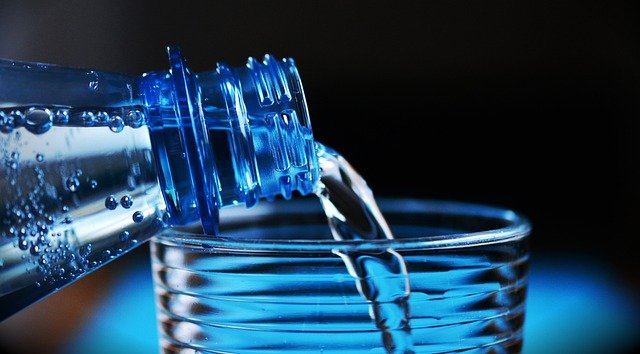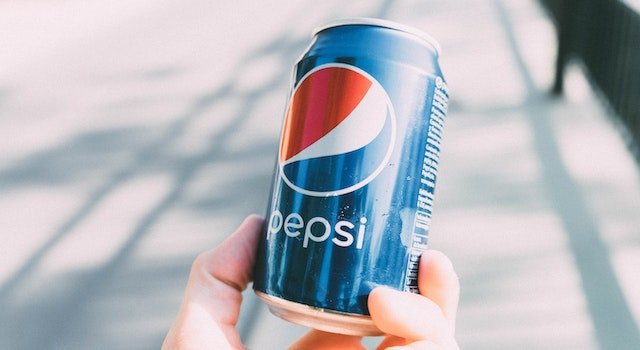Does Pepsi Own Coke?
No, Pepsi does not own Coca-Cola. The two companies are fierce competitors in the carbonated soft drink market, but they are separate and independent entities.
PepsiCo, Inc. is an American multinational food and beverage company that was founded in 1965 through the merger of Pepsi-Cola Company and Frito-Lay, Inc. PepsiCo is best known for its flagship product, Pepsi, a carbonated soft drink that is widely popular around the world. In addition to Pepsi, the company’s portfolio includes a wide range of other food and beverage brands, such as Mountain Dew, Lay’s, Gatorade, Tropicana, and Quaker.
Coca-Cola, on the other hand, is a separate company that was founded in 1886 by John Pemberton. The company is headquartered in Atlanta, Georgia, and is best known for its flagship product, Coca-Cola, a carbonated soft drink that is also widely popular around the world. In addition to Coca-Cola, the company’s portfolio includes a wide range of other beverage brands, such as Sprite, Fanta, Minute Maid, Powerade, and Dasani.
While both Pepsi and Coca-Cola are major players in the carbonated soft drink market, they are not affiliated with one another. They are two distinct and separate companies that compete for market share and consumer attention.
Mountain Dew
The beverage known as Mountain Dew is a part of the Pepsi family. This soda has been around for nearly 60 years and has added billions to Pepsi’s revenue.
It is a popular soda among thrill seekers and young people. It contains caffeine and citric acid, which adds a lemon-lime taste.
The company has released different flavors over the years. Some of these include Baja Blast, Sweet Lightning, and Mountain Dew with a Twist. Unfortunately, these flavors are only available at Taco Bell and KFC.
Mountain Dew is an extremely caffeinated drink, which can help boost energy levels and keep you awake. However, it is not recommended for pregnant women or those who are sensitive to caffeine.
According to Smithsonian Magazine, the first formula for Mountain Dew was created by brothers Barney and Ally Hartman in Tennessee. They were trying to create a mixer to enhance whiskey’s taste.
It was not until later, however, that they were able to sell the product. They first tried selling it to Coca-Cola, but it was not a success. Later, they were able to sell it to a beverage bottler in Virginia.
In 1964, Pepsi bought the rights to Mountain Dew. A couple of years later, they began to come up with a marketing plan to get the drink out into more places.
One of the ways they did this was with a poster. Initially, the poster was a simple image of a man in a uniform delivering a beverage. But it also included a cartoon alligator.
Eventually, the gator was replaced with a shoeless hillbilly. Eventually, Mountain Dew began advertising itself as a zero-proof hillbilly moonshine.
As a result, the drink became a hit. Today, it is the fourth best-selling soda in the U.S. Currently, and it has six to seven percent of the total market share.
Pepsi
Coca-Cola and Pepsi are rival companies that compete on several fronts. While both brands offer the same drinks and products, the market share of each has changed in recent years.
Both companies have had their own struggles. One of the biggest issues is the rising number of sugar-free soda alternatives.
The two companies have also fought for exclusive pouring rights in venues. This affects advertising impressions. A few years ago, Coke announced a new sleek could design. It has since been retracted. However, the Cola Wars continue.
While both firms are facing tough competition from other firms, they have found creative ways to adapt to changing market conditions. For example, Pepsi has come up with various beverages for people looking for a healthy alternative.
As of December 31, 2020, the combined market value of Coke and Pepsi is $444.9 billion. In addition, Pepsi is the world’s second-largest food and beverage company.
Although the same company makes both brands, Pepsi has some advantages when it comes to pricing. Compared to other soft drink options, Pepsi is cheaper to make. Also, Pepsi has a strong marketing presence in some categories.
While Coke has been in the lead for years, Pepsi is gaining ground. In addition, the companies are launching new diet drinks. These are aimed at younger consumers.
Pepsi also has the advantage of being able to offer several sizes of bottled drinks. Naturally, therefore, its prices depend on the targeted demographics.
In the United States, Pepsi owns 21 brands. Some of the more popular ones include Coca-Cola, Mountain Dew, and Gatorade.
In addition, the company has other subsidiary products. For example, PepsiCo sells Tropicana juice drinks. They also own Doritos, a brand that is globally recognized.
Aquafina
A big brand name is hard to beat when it comes to bottled water. However, it is a relatively low barrier to entry, and many big beverage companies have invested in the space.
For example, Pepsi owns Aquafina, a water brand that was first introduced in Wichita, Kansas, in 1994. In addition, the company has a FlavorSplash line of flavored waters. In fact, Aquafina was the largest-selling bottled water brand in the United States for several years.
In addition to its well-known water brand, the company also manufactures several other popular beverages. Some of the most widely sold are Sierra Mist and Mountain Dew. However, PepsiCo has been known for its more popular soft drinks like Diet Pepsi-Cola and Manzanita Sol.
Pepsi also owns Dasani, a bottled water that Coca-Cola manufactures. This is actually a water purification process that is more or less indistinguishable from municipal tap water.
Other popular brands include Gatorade and the ubiquitous Diet Pepsi-Cola. While the Pepsi-Cola company is the biggest, it doesn’t make up the majority of the beverage industry. Another big player is Poland Spring. Quaker Foods North America distributes various food products. Among its many brands are Aunt Jemima, Cap’n Crunch, and Life.
In addition to its numerous still and bottled beverage brands, the company is the maker of the world’s most famous soda, Pepsi-Cola. As one of the world’s largest food and beverage manufacturers, it boasts several other notable subsidiaries. One of its lesser-known but important subsidiaries is the Society for Natural Resources Conservation. Founded in 2007, the SNRCC aims to promote “back to the tap” behaviors, which include using a refillable bottle, reducing food waste, and utilizing green cleaning methods.
Frito-Lay
If you have seen any of the commercials for Frito-Lay, you might be wondering how the snack food brand became a major food and beverage company. The answer is fairly simple. It was merged with Pepsi-Cola in 1965.
PepsiCo is the largest food and beverage company in the world. They own brands such as Mountain Dew, Pepsi-Cola, Quaker Oats, and Lay’s potato chips. In fact, they are so successful that they are able to make up 80% of the snack food industry.
Frito-Lay is a wholly-owned subsidiary of PepsiCo. They manufacture a wide range of snacks, including Doritos tortilla chips, Cheetos cheese-flavored snacks, and Cracker Jack popcorn snacks.
Although Coca-Cola is still a beverage company, the company is facing a downturn in soft drinks sales. This has prompted the company to invest in healthier alternatives. One of the new concepts the company is developing is a monthly subscription service.
Lay’s is one of the most popular snacks available. It was created in 1932 by Herman Lay. Throughout the next three decades, it grew into a recognizable brand. Currently, it has a 30 percent market share in the potato chip industry.
PepsiCo also has a wide variety of other food and beverage brands. Its top beverages include Diet Pepsi-Cola, Mountain Dew, and Gatorade. Another brand is Naked juice.
PepsiCo’s portfolio is diversified and reflects the current trend toward “guilt-free” foods. As a result, it is not as dependent on soda sales as it once was.
PepsiCo’s Latin America Foods division includes brands such as Doritos, Ruffles, and Cheetos. These snacks are sold in Mexico, Colombia, and Spain.
PepsiCo is a member of the Dividend Aristocrats, a group of S&P 500 companies that have increased their dividends for 25 years.
Quaker Oats
The Quaker Oats Company is one of the most popular American brands. Its products include granola bars, ready-to-eat cereals, and cooking oats. They are sold across the United States.
PepsiCo, the parent company of Pepsi and Diet Coke, agreed to buy Quaker Oats in 2001 for $13.8 billion. The deal was approved by both companies boards.
As part of the deal, Quaker will become the second oldest brand in the Pepsi stable, after Pepsi itself. In addition, a new marketing campaign is being launched. This includes billboards and digital ads.
In the past, Quaker Oats has been known for its health-conscious image. Its product line includes granola bars, rice, boxed foods, and ready-to-eat cereals.
The company is also famous for its cereals, including Life. This is a multigrain cereal developed by the company in the 1960s.
In addition to launching its own food brands, Pepsi has also acquired Frito-Lay North America and Tropicana. These are the two largest acquisitions the company has made.
After the takeover, the company will pay $13.4 billion in stock and debt. However, according to the press release, the company expects to grow its revenue by about five percent per year. At the same time, it plans to save $65 million in restructuring costs within the next five years.
Pepsi will have to sell at least some of its food brands to gain approval from the Federal Trade Commission. That could include the brand Rice-A-Roni.
Investors have expressed concerns about the Quaker deal. Analysts say that it would be difficult for the company to manage the wide range of foods that the company owns.
Nevertheless, Pepsi’s acquisition of Quaker should fortify its growth rate. The company has a stock price-to-earnings ratio of around 25.
FAQ’s
Is Pepsi and Coke the same company?
PepsiCo and The Coca-Cola Company are two very different businesses. Although their flagship goods are comparable, they have been head-to-head rivals since the turn of the 20th century.
Does Coke own part of Pepsi?
The Coca-Cola website lists 200 brands that the business owns. These include beverages like Fanta, smoothies from Innocent, and Powerade. It should go without saying, but Coca-Cola does not own Pepsi.
Did Pepsi try to buy Coke?
Three times between 1922 and 1933, the Pepsi-Cola firm made an offer to sell itself to Coca-Cola; for whatever reason, Coke rejected each and every one of these offers, which, in hindsight, is perhaps one of Coke’s worst errors in its 132-year history.
Are Pepsi and Coke friends?
Coca-Cola and Pepsi’s rivalry is well-known. Despite the fact that the Pepsi Challenge in 1975, which led to Coca-terrible Cola’s New Coke catastrophe, truly stoked the rivalry, the two companies have been at odds for more than a century.
Are Pepsi and Coke rivals?
The Coca-Cola Company and PepsiCo have been engaged in a long-running conflict known as the “cola wars,” wherein they compete directly with one another’s product ranges, particularly their respective main brands, Coca-Cola and Pepsi.















